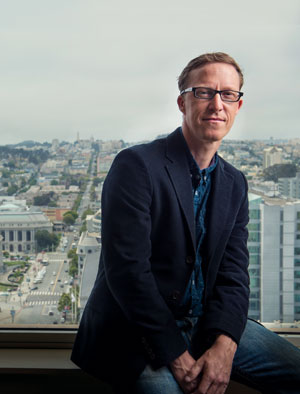Copyright maneuver extends Swiss group's control over Anne Frank's diary

Ben Depoorter. Photograph by Jayms Ramirez
Published in 1947, two years after Anne died at age 15 in the Bergen-Belsen concentration camp, the book chronicles the 25 months the Franks spent in hiding. Otto, the family’s sole survivor, established the Anne Frank Fonds to distribute the book’s royalties to charities.
The book, which has sold more than 30 million copies, was due to enter the public domain in most of Europe on Jan. 1, but the co-authorship move extends the copyright to the end of 2050. The foundation suggests that Frank’s role in editing his daughter’s diaries, combining parts of her diary and her book manuscript, merits his own copyright. Most affected by the move is the Anne Frank House museum, located in the Amsterdam building where the Frank family hid. The museum spent years preparing an online version of the book, which it expected to publish when the copyright expired, according to news reports. Now all online versions, except where allowed in Poland, are being geo-blocked by the Anne Frank Fonds as it enforces its near-worldwide copyright.
While copyright protections vary among countries, this issue is covered squarely by Dutch law because a copyright’s country of origin is the country of first publication. (In the United States, this won’t be a controversy until 2047, regardless of what happens in Europe.) Co-authorship laws are unsettled in both the U.S. and Europe, says copyright professor Ben Depoorter of the University of California’s Hastings College of the Law in San Francisco.
“Co-authorship is usually something you do at the start by mutual agreement. According to both U.S. and Dutch law, it’s customary for editors not to get a copyright unless they explicitly bargain for it. But this is an especially tricky situation because Otto was also the legal owner of the diaries because he inherited them.”
Copyright laws are intended to create financial incentives for artists to produce new work, Depoorter explains, but at the same time, they’re limited so that eventually the public can freely use the materials. “Extending a copyright this far along is questionable because at this late stage, it doesn’t have to do with incentives; it doesn’t serve the interests of creativity.” And there are social losses to extending the copyright—namely, reduced access. “Research suggests that access is better served by works entering the public domain. More people will be reading it and become educated about the important issues reflected in The Diary of Anne Frank,” Depoorter says. “Also, an editor suddenly getting a new copyright is upsetting because people relied on the work becoming public domain. The Anne Frank House has been working on [a project related to] it, gearing up, and then there is this unexpected move.”
But, Depoorter notes, Otto Frank’s foundation is also trying to protect Anne Frank. “They want to make sure that Anne stays Anne. They don’t want people writing a fictional story about her, for example. You can’t control that as easily when a work is in public domain. So it’s not just money that’s driving them, but moral rights. There’s no easy answer.”
This article originally appeared in the August 2016 issue of the ABA Journal with this headline: “In the Dutch Domain: Why Anne Frank’s diary isn’t free yet.”



